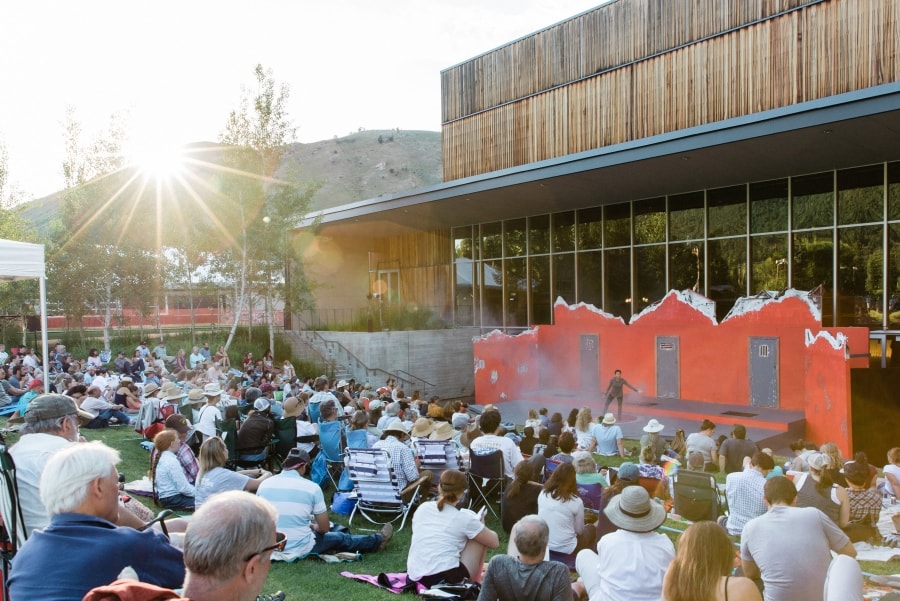JACKSON, WYO.: Jackson Hole Valley is known for its world-class ski resorts, alpine lakes, and proximity to parks, including Yellowstone National Park. In the town of Jackson, Off Square Theatre Company is housed inside the Jackson Hole Center for the Arts, between the Teton Range and the Gros Ventre Range mountains near the border of Idaho. American Theatre spoke with artistic director Natalia Duncan Macker and executive director Clare Payne Symmons via email about producing theatre in the mountains. (Unless otherwise noted, answers are from both leaders.)
Who founded Off Square Theatre Company, when, and why?
Off Square started as an artist-run co-op in Jackson Hole many years ago to collaborate on making theatre and telling stories in our small town, self-named “The Last of the Old West.” Over the years we’ve gone through several iterations and stages of growth. In 2008 we became the resident theatre at the newly constructed community Center for the Arts, which includes a 500-seat theatre and our very own black box. This year, we are celebrating Off Square’s 20th anniversary season and are pleased to also be in the early phases of gaining Small Professional Theater designation from Actors’ Equity Association. Our why remains simple: to provide community connection, to tell stories that inspire and spark dialogue, and to deliver artistic excellence.
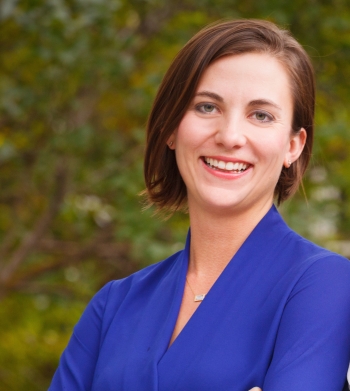
Tell us about yourself and your connection to Off Square.
NATALIA DUNCAN MACKER: Being an artistic director is not a job I thought I would have—at least not until I was much later in my career—so it has been a wonderful journey to be able to evolve and take risks with a small company. I moved to Jackson Hole after spending five years in Los Angeles pursuing performing and producing after college. My husband, who is a visual artist, and I wanted to live in a smaller community that still had a vibrant arts scene. When we decided to move here permanently in 2011, I joined the staff, providing education and production coordination in addition to performing in shows. When the company entered a transition phase, it was a true honor to be invited by the board to fill the artistic director position in 2013. While it was fabulous to be able to step in and continue and grow the company’s existing programs, it has been humbling to have the company’s support to launch a new tradition within our community, free outdoor Shakespeare, which just completed its sixth summer. My connection is truly with the artists and leaders of our company and with the profound commitment to bringing theatrical excellence to our community. I am challenged every day by our work.
CLARE PAYNE SYMMONS: I come to Off Square after 25 years of nonprofit management and consulting. I started as interim director, and it stuck. Despite growing up with the Oregon Shakespeare Festival being the highlight of my summer, specializing in Renaissance drama in my English major, and even performing, I never thought to work for a theatre company. Now that I’m here, I can’t think of another job that is as rewarding!
What sets your theatre apart from others in your region?
Off Square is excited to be both community-based and focused on its growing network of artist relationships around the country. We know the beautiful landscape of our valley, including two national parks, is a draw for our guest artists, and we have invested heavily in cultivating relationships across the country so that we might bring the work of theatre professionals to our corner of Wyoming. They come here to work and reconnect with their deeper artist, and we send them home rejuvenated from their time connecting with the wildlife and natural world. This ever-evolving loop of artistic exchange is a driver behind our work. This has included an informal relationship with the MFA program at the University of Southern California through our Thin Air Shakespeare director, Edgar Landa. It has also been an ongoing relationship with Missoula-based set designer Michael Fink. It is also a consistently expanding network of performers who return to work with us or share our theatre with their peers who then come to work with us. This rich network is also vital for our local artists who seek to grow and expand their own craft and build connections with the broader, and usually urban, theatre community.
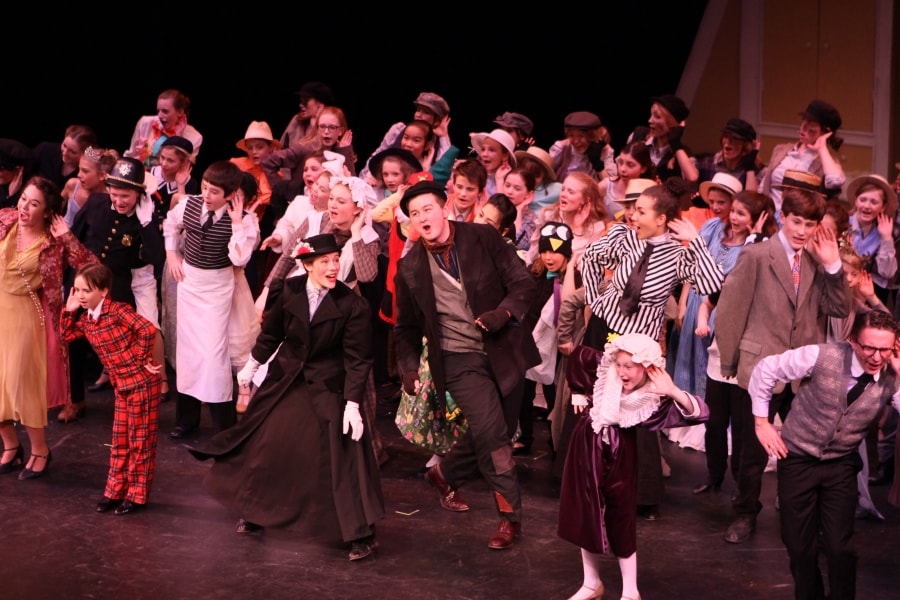
How did the theatre get its name?
Apparently there is some legend here…but the general consensus is that a dinner party was held and a number of new names were considered to replace what was the Performing Arts Company of Jackson Hole. Given that we have always been in theatre spaces that were literally off the town square, Off Square Theatre Company was the winner. We love this name because a public square is a natural gathering place, and so is a theatre.
Who is your audience?
Despite living in a mountain town that sees a high volume of tourists, it is our local community members of all ages that make up our core audience. While we are delighted to see visitors in our audience, our aim is to provide high-quality cultural experiences for our residents and to tailor our offerings, both onstage and within our outreach, to the issues, conversations, and daily lives of our town.
Tell us about your favorite theatre institution other than your own, and why you admire it.
There are so many! We very much enjoy watching the work of our neighbors to the south in Denver at the Curious Theatre Company. Their commitment to challenging audiences, asking tough questions, and putting all stories on stage is inspiring. The Clarence Brown Theatre in Knoxville, Tenn., and the Oregon Shakespeare Festival in Ashland, Ore., are two others that we admire because of our staff’s hometown connections.
How do you pick the plays you put on your stage?
DUNCAN MACKER: I convene an artistic committee that includes members of the company’s board of directors, engaged audience members, as well as members of our professional artist community. The committee reads plays that I select from a wide net cast across the field of theatre. We address community issues, ensure we are representing broader themes within our daily lives, and expanding the diversity of our arts experiences in our community. We also look for opportunities to partner with other local, regional, or national organizations to highlight the work of our broad artist network.
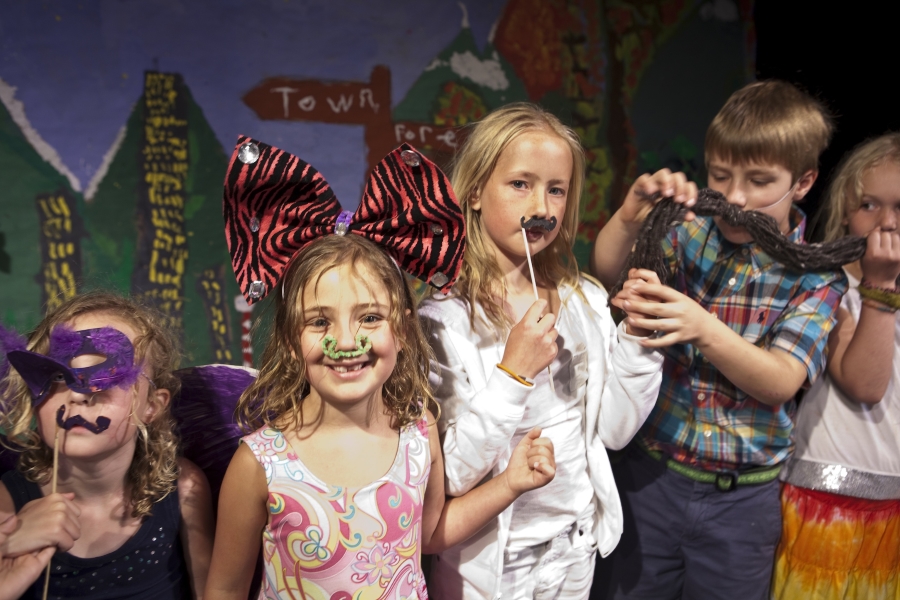
How do you plan the engagement and education programming that surrounds the season?
Off Square has a rich history of engagement outside the theatre, as well as a long history of education offerings. While we aim to have stability in our core programs, we like to be nimble and respond to our community, which is rapidly evolving and constantly changing because of our seasonal economy. Our annual youth musical paired with our intensive summer camps are the backbone of our education program. These are directed by performer, vocalist, and licensed educator Nicole Madison Garrett. We select our annual youth musical as part of our season selection process, and we always look for material that will give us an opportunity to be even more inclusive. Our goal is always to give youth an opportunity to succeed onstage, push the boundaries of their comfort zone, and help them gain new skills, all while building strong friendships. We especially love the youth musical because it is an opportunity for kids of all ages to do an activity together when so many of their other activities are separated by age group.
Another key outreach program of ours is 2nd Act- Theatre for Lifelong Learners. This program was launched after one of our audience enthusiasts shared with us that he liked to read plays to keep his memory sharp. From there we have been able to engage several local older adult actors to run a bimonthly program at our senior center, direct first-time older adult actors in staged readings, and provide talkbacks within our regular season. All of this is aimed at expanding social connection and improving cognitive abilities, but mostly having fun.
What’s your annual budget, and how many artists do you employ each season?
Our annual budget is approximately $475,000, which includes our dedicated black box theatre and our scene and costume shop. We are honored to be able to employ artists on our year-round staff and through our production season. We average about 16 local artists and 6-10 guest artists as performers, designers, technicians, directors, and teachers. Our annual youth musical—which has a professional staff and youth performers—includes 75-90 youth each year and requires support from parents and the whole community. We couldn’t do it without the volunteer help!
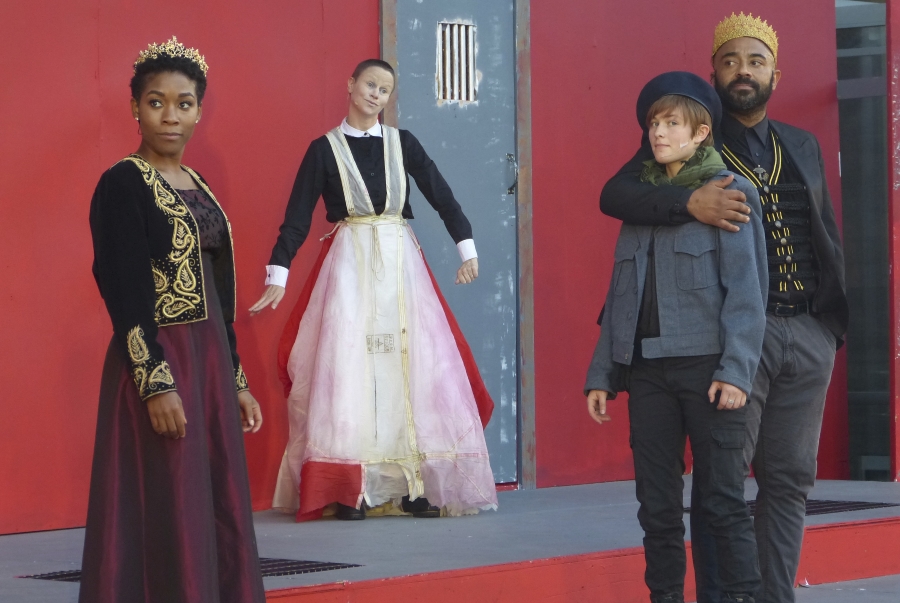
What show are you working on now? Anything else in your season that you’re especially looking forward to?
We just completed our sixth summer of Thin Air Shakespeare—our free outdoor summer theatre event. This summer’s production was Macbeth. We were admittedly somewhat tentative about producing our first tragedy after five years of lighter Shakespearean fare, but our audiences showed up in full force—with their picnics—and had a blast.
We are in pre-production for two shows. Our fall black box production is Annapurna by Sharr White (Nov. 1-10). We are delighted to be collaborating with a creative team from Denver to bring this to our community, including Kate Gleason, who is reviving a role she has played nationally and internationally. Our audiences really adore intimate theatre in our black box, so being able to produce a show as moving and well-rounded as Annapurna is always a treat. We love to watch the faces of the audience during the black box shows. It truly displays the magic of the performer/audience exchange in such an intimate setting.We are also in pre-production for our annual youth musical…and we’ll use this opportunity to formally announce that we’ll be producing The Addams Family with our local youth!
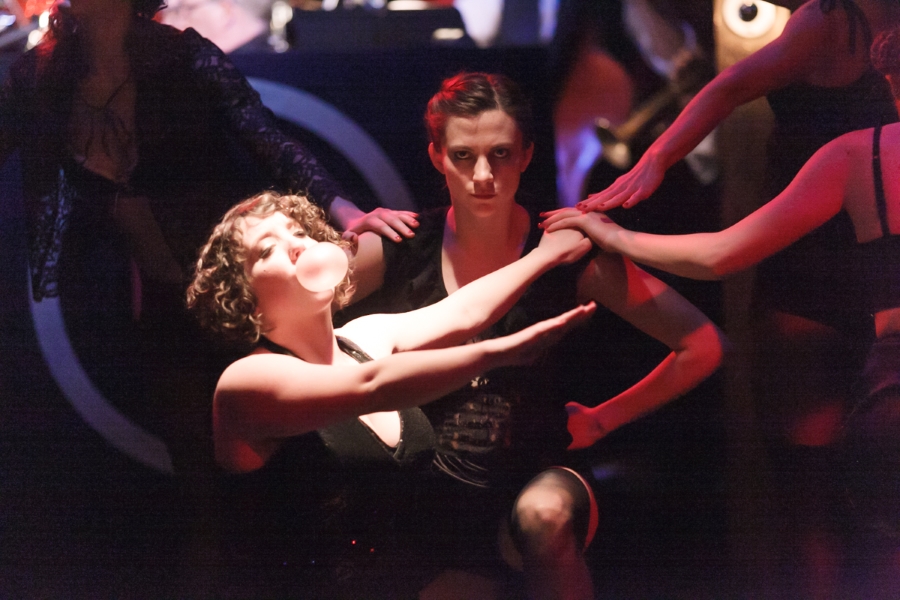
Strangest or funniest thing you’ve ever seen (or put) on your stage?
We polled some of our audience and got a delightful mix of answers! They included WWF wrestlers in The Taming of the Shrew; a pregnant Kit Kat Girl in Cabaret; actor and board member Jamie Reilly in a gold Elvis suit; a functioning waterfall in Water by the Spoonful (perhaps not funny, but certainly surprising); and Bob Berky doing anything (Bob is a local writer and performer, and former artistic director).
What are you doing when you’re not doing theatre?
DUNCAN MACKER: I am a local elected official—vice chair of the Teton County Board of Commissioners—which takes me all over the state of Wyoming and has introduced me to many new applications for collaborative work. I also produce film and theatre in New York and Los Angeles with Firefly Theater & Films. Oh, and parenting my two delightful sons!
PAYNE SYMMONS: They let me play in the costumes! I have been costuming our shows for the last couple of years, and it has been a blast.
What does theatre—not just your theatre, but the American or world theatre—look like in, say, 20 years?
More inclusive and more representative of a greater variety of experiences. Also, more accessible within all the meanings of that word. The Bread & Puppet Theater’s Why Cheap Art manifesto continues to ring true. Theatre can be a wonderfully democratic expression if we allow it to be. For us this not only means telling the stories of more people in our community and country, but also having casts and production teams that look like the broader population. This also means we have to invest in theatre, recognize its role within our communities, and utilize the skills of creative individuals to solve our most pressing challenges. We must take the time to learn from those who are different from us. We truly believe that theatre can change the world, and it starts one play, one artist, and one small theatre at a time.

